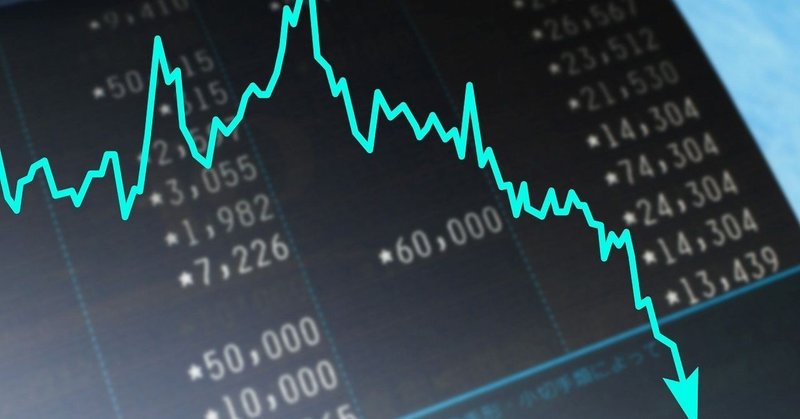
2009年の不況以上の事態になることに対し、対応できない可能性のある新興国・途上国
今回の海外ジャーナル
"Emerging and Developing Economies Less Prepared Now for a Deeper Downturn than Prior to 2009 Global Recession: Study"
(2009年の不況以上の事態になることに対し、対応できない可能性のある新興国・途上国)
https://www.worldbank.org/en/news/press-release/2019/11/19/emerging-and-developing-economies-less-prepared-now-for-a-deeper-downturn-than-prior-to-2009-global-recession-study
内容
WASHINGTON, November 20, 2019—Emerging and developing economies are less well positioned today to withstand a deeper global downturn, should it occur, than they were before the 2009 global recession, although they now have more resilient policy frameworks to respond, a new World Bank Group study of the global recession and its aftermath finds.
新興国および途上国は現在、かなり活力のある政策を持っているが、今後想定される2009年の大不況よりさらに深刻な世界恐慌に耐え抜くための、準備が不足しているであろう、という世界銀行の世界恐慌に対する調査。
With multiple risks to global growth clouding the outlook, there is concern whether emerging and developing economies can effectively respond to a deeper economic slowdown as they were able to do during the 2009 global recession. The new study by the World Bank Group, A Decade after the Global Recession, compares emerging market and developing economies’ preparedness then and now, and finds reason both for concern and for optimism.
先の見通しが暗い世界成長における様々なリスクの中、新興国及び途上国は2009年の大不況以上に厳しい経済の下降が想定される。これらは世界銀行グループが現在と今後についての見解を示したもので、懸念事項と楽観的内容の両方を述べている。
“The big lesson of the past decade is clear, you need to be prepared for the unexpected,” said World Bank Group Vice President for Equitable Growth, Finance and Institutions, Ceyla Pazarbasioglu. “Developing countries need to urgently boost resilience and growth, by building human and physical capital, streamlining business regulations, and strengthening institutions.”
「過去から学ぶことは明確で、予期せぬできごとに準備が必要であるということだ」と世界銀行のCeyla Pazarbasiouglu副総裁は言う。「途上国は至急、人づくりならびに物的資本の投入、ビジネスにまつわる規定を合理化、制度を強固にすることにより弾力性・成長性を上げる必要がある。」
Since the 2009 global recession, emerging and developing economies have become more vulnerable to external shocks in an environment of mounting debt and weakening long-term growth prospects, the study finds.
2009年の不況以降、新興国および途上国は増え続ける負債や弱まる長期の成長の見込みの環境下、海外からのダメージにより打たれ弱くなっている、と指摘する。
However, at the same time, many emerging market and developing economies now have stronger policy frameworks, such as fiscal rules and inflation targeting monetary policy regimes, than during earlier financial crises and global recessions. Meanwhile, international financial sector regulation has strengthened.
ただ一方、同時に、先の金融恐慌や世界不況と比較すると、多くの国々が現在、インフレをターゲットとした体制や金融ルールといった、より強固な政策を持っているという見解もある。そうした中、世界的な金融セクターの規制はより強くなっているとも見てとれる。
“Policy frameworks in many emerging and developing economies have become more resilient, for example through inflation targeting regimes and fiscal rules,” said World Bank Prospects Group Director Ayhan Kose. “However, in light of downside risks and elevated vulnerabilities, policymakers should prepare their economies to mitigate the impact of adverse shocks and ensure that policy space is available to act when such shocks occur, as they inevitably will.”
「多くの国々の政策はより弾力性のあるものとなっている。インフレをターゲットとした体制や金融ルールが良い例だ。」と世界銀行グループのAyhan Koseディレクターは言う。「一方で、経済鈍化のリスクと高い脆弱性の中で、政策担当者は不利なショックの影響を軽減するための準備をしておくべきだろうし、おそらく起こるであろう事態に備え政策の余白を設けておく必要もあるだろう。」
The World Bank Group’s response to the global recession was unprecedent in both financing volume and country coverage, and prioritized the areas of finance, infrastructure, fiscal management, and social protection. The Bank introduced new crisis response facilities to improve its assistance to developing economies and improved its monitoring of global macroeconomic developments to more effectively flag risks.
今回の件は金融規模、国の報道どちらも先例のないことで、金融、インフラ、財政マネジメント、社会の保護を優先させるべきと世界銀行は述べている。開発途上国への支援を改善するために新しい危機対応方策を導入し、リスクをより効果的にフラグするために世界的なマクロ経済の発展の監視をすべきと世界銀行は指摘する。
スイミーの思ったこと
① 世界銀行はリーマン不況並みの不況がコロナで来る可能性があると言っている。怖い。
② 発展途上国の人も大きな不況を心配している人がいる。ぼくのミャンマーの友達も危惧していた。
③ コロナが流行っていないところにも不況の余波が大きくあるんだ。
TOEICに出そうな英単語5選
downturn:下降
withstand:耐える
multiple:多数の
mitigate:やわらげる
recession:不況
この記事が気に入ったらサポートをしてみませんか?
